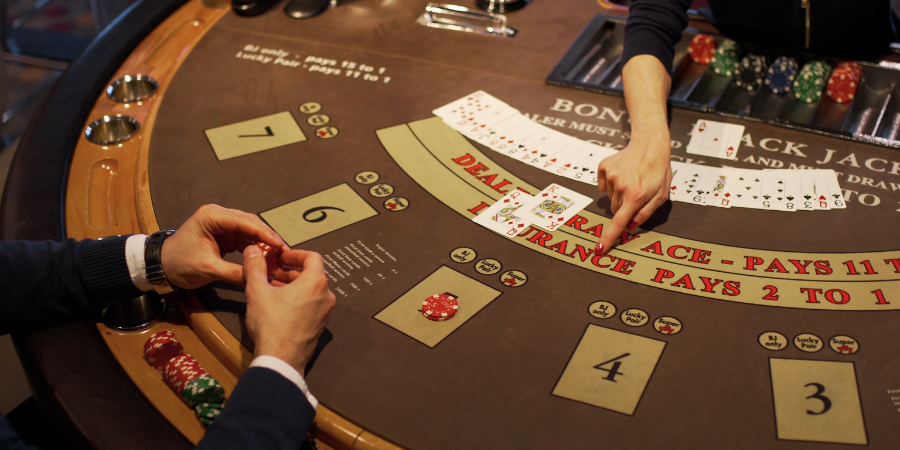
Written by:

Medically Reviewed by:
Last Updated:
August 7th, 2025
Behavioural Addiction | Definition, Types and Signs
When we think of addictive behaviour, we may associate it with something trivial like watching our favourite TV show on repeat or listening to the same song daily. People may adopt a more solemn outlook when they hear the word ‘addiction’ in a medical context. Their minds could initially think of substance addiction, such as alcohol, illegal narcotics, and prescription drugs. However, it’s essential to establish that diagnosed behavioural addiction is just as medically serious.
What is behavioural addiction?
Behavioural addiction is often identified as a compulsion to frequently engage in a specific behaviour, regardless of any damaging consequences to the afflicted person’s mental and physical health. Behavioural addictions work similarly to substance addictions because doing specific actions repeatedly increases a rush of dopamine in the brain, in the same way substances do.
When a person is hooked on doing a particular action, they experience a rush of euphoria and will want to re-create that same excitement, thus instigating an inner desire to yearn for more of the high. This becomes dangerous when a person becomes so fixated on something they neglect other aspects of their life and, in doing so, may damage close relationships.
Below is a list of behavioural addictions you may want to learn more about:
Gambling addiction
Learn everything you need to know about addiction to gambling.
Internet addiction
Learn everything you need to know about addiction to the internet.
Sex/Love addiction
Learn everything you need to know about addiction to sex/love.
Shopping addiction
Learn everything you need to know about addiction to shopping.
Social media addiction
Learn everything you need to know about addiction to social media.
What are the signs of behavioural addiction?
If you suspect yourself or someone you love to have a behavioural addiction, read through the following statements to see if they apply:
- I’m neglecting work, studies, or responsibilities due to engaging in a specific task.
- I’ve attempted to cut down or quit the behaviour but feel powerless to stop.
- I hide my behaviour from others (makeup excuses, tell lies or engage in such behaviour at times when others aren’t around)
- I frequently stay awake at night to engage in behaviour which compromises sleep.
- I’ve disregarded my hygiene since engaging in the behaviour.
- I’m engaging in behaviour to control my emotions.
- I experience unpleasant withdrawal symptoms when I can’t access the source of behaviour.
- I feel shame or depression after engaging in the behaviour.
Behavioural addiction is invisible
It may be easier for society to accept an addiction to a substance than a form of behavioural addiction because people may associate a drug or alcohol dependency with something physical, therefore accepting it as an illness. Whereas a behavioural addiction seems to be something that happens mentally and given that some of the behaviours, e.g., shopping is something we all do, it’s easy to make assumptions that a person is unintelligent or weak-willed because they can’t exert control over such behaviour.
This ignorant stigma can drastically hurt a person with a behavioural addiction and thus propel them further into behavioural dependency.
What causes behavioural addiction?
What’s interesting about behavioural addiction is that it’s not the behaviour which is harmful. For example, many people gamble without developing an addiction. Instead, addiction usually occurs in response to a person’s underlying trauma or unhealed emotional wounds. For example, somebody may have recently been through a painful divorce and found comfort in using the internet. Since their emotional pain still exists, they may continue to use the internet more often to ‘escape’ from it. This habit and the rushes of dopamine accompanying it could give way to it being their sole priority and result in behavioural addiction.
All behavioural addictions are responsible for increasing dopamine in the brain, thus making those who are addicted feel (temporally) good. In some cases, genetics play a role in why people build strong compulsions, as the brain’s neurons affect the level of reward messages in the brain. Furthermore, mental health disorders such as anxiety and ADHD may play a role in behavioural addiction development. Therefore, behavioural addictions should be treated with the same respect as any other form of mental health, and it’s vital to burst any taboos around such mental health disorders.
Who can develop behavioural addiction?
Anyone can develop behavioural addiction. Primrose Lodge understands that behavioural addictions strike at any time and can happen to anyone regardless of economic background, level of intelligence, gender or age. However, behavioural addiction can be hard to sport, and people often struggle in silence.
Some types of behavioural addictions aren’t easy to discuss and may prevent those suffering from seeking help. For example, somebody addicted to porn may struggle to tell those close to them how they’re feeling, and they may even reprimand themselves, which could give way to intense depression and self-harm.
Primrose Lodge aims to create a safe space where people can be open about their behavioural dependencies, and under no circumstances do we shame our clients; our sole purpose is to help you heal and regain your quality of life.
How do people overcome behavioural addictions?
The first step is acceptance. Allowing yourself to acknowledge you have an addiction is the most pivotal step. Then, it is essential to be gentle with yourself. As humans, we all face challenges in our lives, and behavioural addiction is just part of your story. It is not who you are and it doesn’t define your life.
The best way to overcome behavioural addiction is to spend some time in a professional and peaceful rehabilitation centre. We see many people walk through our doors feeling debilitated from addiction and feel just as vulnerable as you may feel now. However, the same people leave our doors feeling stronger and more hopeful after gaining a more profound sense of clarity on what drives their behavioural addiction and understanding how to prevent relapse.
Experiencing a behavioural addiction can feel like you are bound by invisible ropes, causing you to feel powerless and exhausted, and those close to you can’t see why. We understand the feeling, and we want to give you the best tools possible to cut through such binds and regain freedom again. You don’t deserve to suffer in silence. So reach out today, and let us guide you toward recovery with our behavioural addiction treatment programme.





